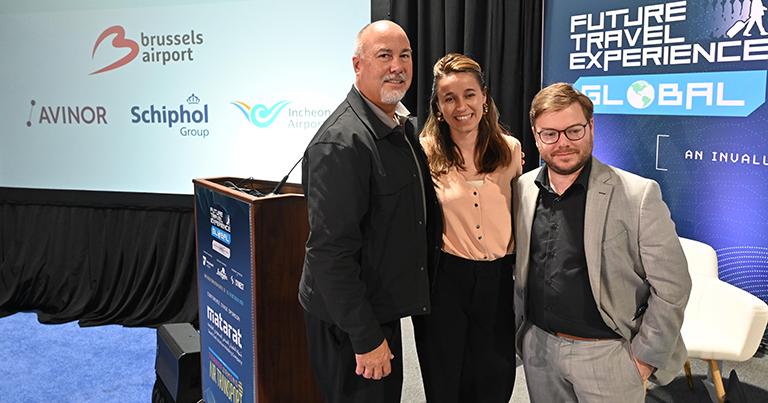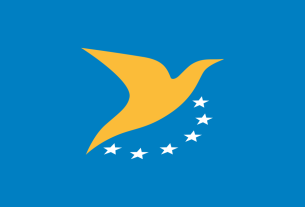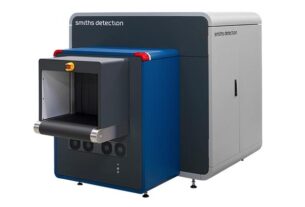In a major announcement at FTE Global – the “CES of Aviation” which took place in Los Angeles on 28-30 October 2024, Brussels Airport has been unveiled as the latest member of BOOST – a groundbreaking initiative to transform the future of baggage handling through robotics and automation.
BOOST was officially launched in June this year by innovation consultancy nlmtd (Unlimited) in partnership with FTE via the Baggage Innovation Working Group (BIWG). The initiative commenced with Royal Schiphol Group, Avinor and Incheon International Airport Corporation as core airport partners, now joined by Brussels Airport, all of which are members of the FTE BIWG.
“We are delighted to welcome Brussels Airport to the collective of pioneering airports joining forces to innovate baggage automation and improve working conditions,” says Wopke Dost, Director Open Innovation, nlmtd. “BOOST leverages the innovation power of multiple airports in a collaboration focused on hands-on execution in the baggage journey. By executing pilots for different innovations within a collective of airports, we enable rapid technology implementation for all involved parties and the potential to scale solutions effectively for the industry.”
Brussels Airport Proof of Concept on AGVs
Each core member of BOOST is working on a unique technical challenge, conducting onsite Proof of Concepts (PoCs) to test robotics and other technologies. Information and insights from these PoCs will be shared with the other core partners, allowing all to benefit from multiple tests without having to execute them independently. This collaborative approach aims to speed up the innovation process across all participating airports, and to zoom in on the people & process aspects of technology integration to enable successful and sustainable implementations.
Having recently launched its program towards a futureproof baggage system, with investments being made in semi-automated loading systems and lifting aids, Brussels Airport is undertaking a PoC focused on Automated Guided Vehicles (AGVs). This will build on Avinor’s PoC with Vanderlande (an FTE BIWG member) so continuing the learning journey together via BOOST.
“Brussels Airport is excited to join the BOOST initiative and collaborate with other pioneering airports to drive baggage innovation and explore new ways of working within baggage,” says Yorick Buys, Head of Baggage, Brussels Airport. “We are convinced that we can get more momentum by enhancing each other’s ideas and end up with better solutions this way.”
Key learnings from Schiphol, Avinor and Incheon PoCs in 2024
Schiphol is investigating the most effective automated loading solutions. The airport is currently operating six CoBro’s to load carts and is working on enhancing this technology. While further developing its current loading solution, Schiphol is also introducing the Eltonomous as an alternative robotic loading solution for comparison. “At Schiphol, we’ve seen significant progress in our PoC with automated loading solutions, where our CoBro’s are getting more precise, faster, and have reduced the amount of human interventions significantly while loading baggage,” shares Dennis van Kleef, Programme Lead Baggage, Royal Schiphol Group. “This hands-on experimentation is crucial for refining the technology, understanding our operational processes and people needs. This exploration could result in also considering alternative solutions for various use cases, eg: the Eltonomous robotic loader. The BOOST initiative has enabled us to test and share these developments with our partners, accelerating the collective journey towards a more efficient baggage handling while reducing physical strain.”
Meanwhile, Incheon is demonstrating an odd-sized baggage handling concept by utilising Doosan Robotics to automate the handling of irregularly sized and heavy baggage, classifying and transporting to each terminal building. This will alleviate the workload for baggage handlers and enhance operational efficiency. Gwanghoon Jeong, Senior Manager BHS Engineering & Renovation, Incheon International Airport Corporation, comments: “Incheon’s PoC with Doosan Robotics focused on finding the centre of gravity by technology, has proven to be essential for handling odd-sized and heavy baggage. While optimising the software together, we’re also exploring the right gripper technology for these odd-sized baggage pieces. Automating these processes enhances efficiency and enhances our vision of digitising the full baggage journey. The BOOST collaboration allows us to refine and implement this technology while learning from the experiences of our fellow airport partners in for example the gripper technologies.”
Avinor is optimising the baggage journey with their load cells concept. Within the PoC they have combined and integrated the speedloader from Beumer with a robot from Vanderlande in their testing area. The results are impressive, with over 250 bags loaded per hour within one load cell and manual actions reduced by over 50%. With their own self developed software suite BLFlow they are now also able to both manage all tasks with the handlers, as well as trace the bags on the first and last mile journey at the airport. Idar Sørgjerd, Department Manager, BHS, Tech & Op. Excellence, Avinor, explains: “Our PoC on optimising the baggage loading process has demonstrated the potential for reducing manual processes and increasing operational efficiency in baggage handling. The load cells we are testing can bring significant improvements, and being part of BOOST allows us to leverage shared insights and fast-track innovation across the industry.”
Phase 2: working on shared challenges; plus, BOOST now open to airlines and new airports
After the launch and first phase of BOOST, which has focused on knowledge-sharing by running pilots on their own challenges between the different airports, the initiative is now evolving rapidly as it moves into phase 2. This involves working on a shared model of a full-on automated baggage handling journey, by executing shared challenges including cross-airport assumptions & requirements per PoC, as well as a structured report out on insights across the themes of People, Process & Product.
During FTE Global, the collective members of BOOST defined the integrated roadmap for 2025, including each participant’s local perspective in shaping the challenges and themes to work on during the next year.
Looking ahead to 2025, now that the framework for the collaboration has been set, BOOST is open for a new party with ambitious goals in baggage automation to join.
If you are interested in participating, please contact Wopke Dost, Director Open Innovation, nlmtd: [email protected] and Darin Juby, Head of Transformation, Future Travel Experience: [email protected]



